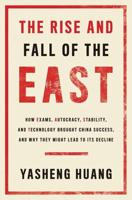Publisher's Synopsis
Though they work largely out of the eye of the public, political consultants -- "image merchants" and "kingmakers" to candidates -- play a crucial role in shaping campaigns. They persuaded Barry Goldwater to run for president, groomed former actor Ronald Reagan for the California governorship, helped derail Bill Clinton's health care initiative, and carried out the swiftboating of John Kerry. As Dennis Johnson argues in this history of political consulting in the United States, they are essential to modern campaigning, often making positive contributions to democratic discourse, and yet they have also polarized the electorate with their biting messages. During the nineteenth and early twentieth centuries, political campaigns were run by local political parties, volunteers, and friends of candidates; but as party loyalties among voters began to weaken, and political parties declined as sources of manpower and strategy, professional consultants swept in to carry the day. Political consulting emerged as a profession in the 1930s with writers Leone Baxter and Clem Whitaker, the husband and wife team who built their business, in part, with a successful campaign to destroy Upton Sinclair's 1934 bid for governor of California. With roots in advertising and public relations, political consulting has since developed into a highly professionalized business worth hundreds of millions of dollars. In fact, some of the top campaign consulting outfits have more recently come full circle and merged to create new public relations firms, serving not just candidates but also shaping public advocacy campaigns for businesses and nonprofits. Johnson, an academic who has also worked on campaigns alongside the likes of James Carville and pollster Peter D. Hart, suffuses his history with the stories of the colorful characters who have come to define the profession of consulting, from its beginning to its present. This will be the most complete and sweeping story of the profession to date. As such it tells not just the making of a political business but the very contours of modern American politics.









